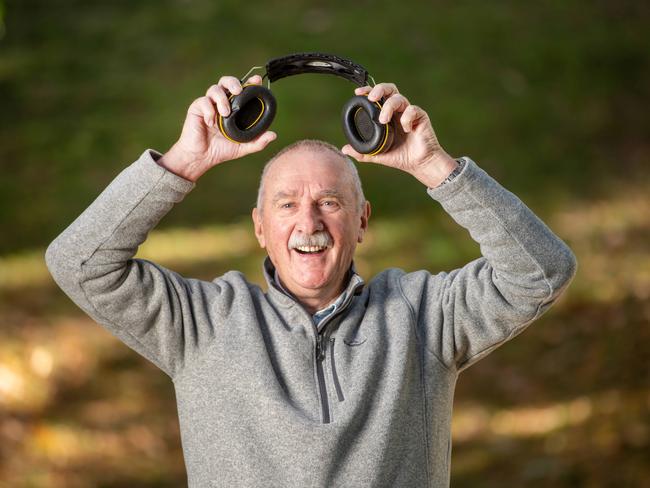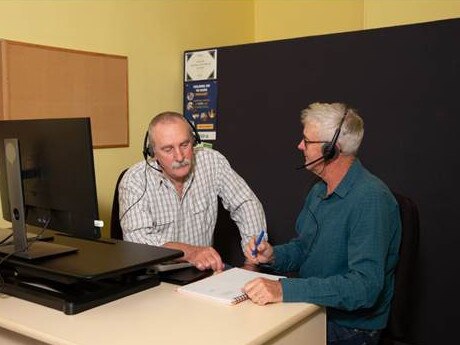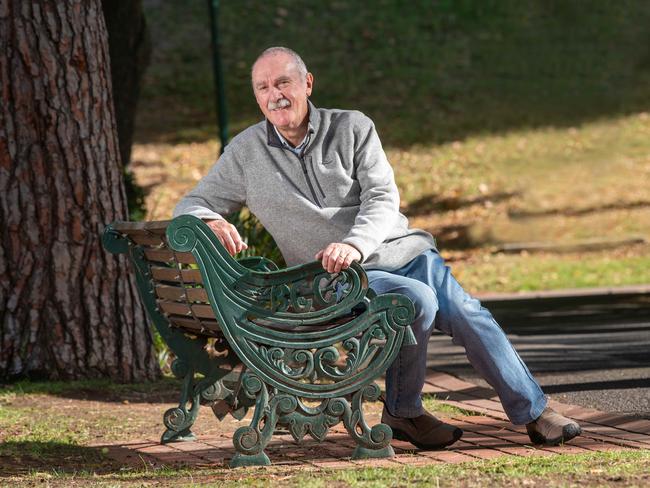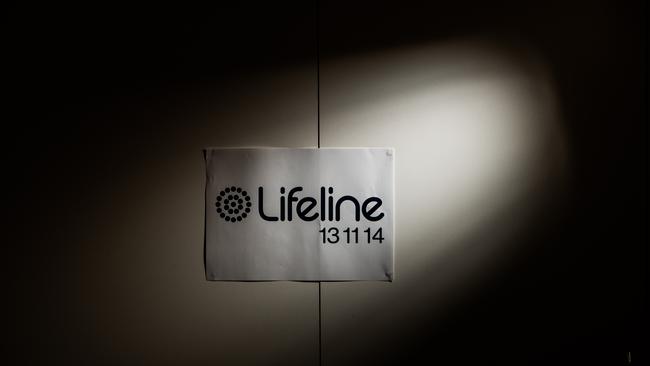Bob started volunteering at Lifeline after a friend died from suicide. 25 years later, he is still on the line talking to people considering ending their lives. This is what he’s learnt.
Putting on his headset, Bob has no idea what call will come in next.
He’s arrived to volunteer at the Bendigo Lifeline call centre and every day — and every call — is different.
Some days he’ll spend the entire shift talking to one person. Sometimes the calls are back-to-back.
Some people are calling to simply ask about the weather and have some human connection.
Other times they’re contemplating taking their own lives.
But the one guarantee?
Almost every call will be one of two things: incredible loneliness or someone dealing with domestic violence.

The 81-year-old began volunteering for the free, 24-hour helpline more than 25 years ago, after a friend died from suicide.
He’s one of 10,000 volunteers in the 41 centres across the nation that receive more than a million contacts each year.
Despite being anonymous, the phone calls are all about building a connection, Bob* says.
He doesn’t give advice, he just listens, and helps callers flesh out their own issues.
“You come to the realisation that people are calling because they need to talk, and you can’t pick what calls you answer so you listen,” Bob says.

It's a hard job — some calls are heavier than others — but the more calls he took, the easier the job got.
It’s not him having the crisis, Bob explains. He’s just helping someone else cope.
Lifeline calls can come in from anywhere around Australia and can be a serious life breakdown or someone just wanting some company.
“Sometimes callers are so distressed they cannot think,” Bob says.
“They need to be slowed down and to be talking to someone they can trust.”
They need a conversation with no judgement, and little reaction.
Reacting could mean you miss what the caller is actually talking about and the calls can become almost meditative.
“Your own life disappears,” he says.

Throughout his years of volunteering Bob has noticed calls usually come months after major events.
People are too busy “surviving” after a traumatic event, he says. It’s later when the calls begin.
“If you are in the middle of the stream, paddling to save your life, you are not going to ring Lifeline,” Bob says.
It’s months later, when people are “still trying to find housing or fighting with the insurance company or struggling with the grief” that they suddenly realise they need help.
That delayed reaction is common, according to Australian Psychological Society president Catriona Davis-McCabe.
People need time to understand what they went through, she says, before they can engage in treatment.
And while organisations like Lifeline — just one of multiple crisis hotlines across the nation — are “doing all they can” to address Australia’s mental health crisis, Dr Davis-McCabe says more needs to be done.
“Without government addressing the missing middle, we will continue to be overly reliant on volunteer organisations, police and emergency departments for people gripped by suicidal ideation,” she says.
Affordable and accessible psychology services are what’s needed, she says.
But until that happens, she urges anyone in crisis to reach out — whether it be to friends, family, their GP or Lifeline.
“Don’t deal with it alone,” Dr Davis-McCabe pleads.
For Bob, volunteering for the mental health organisation has helped him in his own life too.
He knows how to communicate better now, he says, which has helped him talk more with his mates.
And if he has something going on in his own life, he’s now able to concentrate more fully on the issue, without getting “sidetracked”.
More than anything, Bob wants people to reach out if they need help.

Lifeline gets up to 3000 calls a day — about one call every 28 seconds.
Last Sunday it received the highest number of calls it ever has, following a week of renewed spotlight on the severity of violence against women in Australia.
But it’s not enough. In 2022, the latest national statistics available, about nine Australians lost their lives to suicide each day.
Two of those, each day, were Victorian.
And while a conversation with someone like Bob is not guaranteed to change those to zero, it’s a good start to process things.
“Even if you just need to vent and talk through a problem or if you are having a crisis, someone will be there to answer your call,” he says.
*Bob asked his surname not be used.

Add your comment to this story
To join the conversation, please log in. Don't have an account? Register
Join the conversation, you are commenting as Logout
Methed-up man charged over Bendigo home invasion
An accused Bendigo crook charged over a home invasion is behind bars after allegedly fleeing police in dangerous high speed pursuits.
Why mum in home birth tragedy missed check up with obstetrician
An inquest is investigating whether a mum was suitable for home birth and, ultimately, whether her son’s death was preventable.